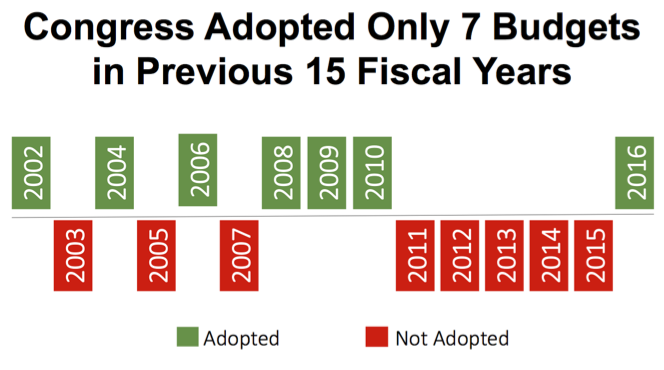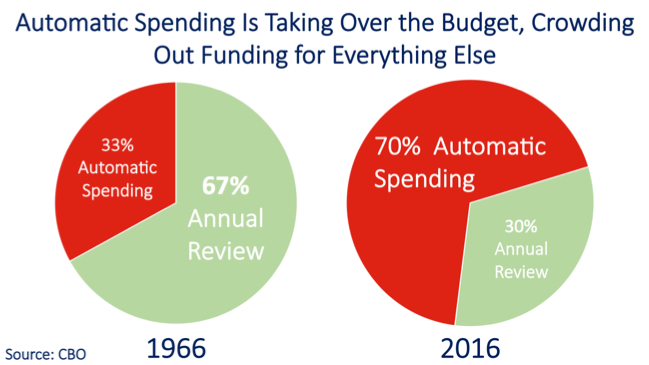Wanted: A Budget That Matters

Probably the worst kept secret in Washington is that America’s budget process is broken. As chairman of the committee tasked with putting together a budget every year, I should know. Last year was a big one for our committee, because after years without a budget, the Senate last year was able to pass its first joint balanced budget since 2001. Unfortunately, just six months later it was ignored, and as a result our deficit and debt rose significantly.
America’s broken budget process no longer fits the problems facing our nation today. In fact, it actually prevents Congress from tackling the pressing fiscal challenges facing our country, including the government’s out of control spending and skyrocketing national debt.
Our Founding Fathers gave Congress key tax and spending functions known as the “power of the purse.” In recent years, as we all know, Congress has not been exercising that power responsibly.
The last time Congress reformed the budget was in 1974. Times have changed and the 40-year old process has only grown more dysfunctional as it has grown more antiquated. Today, budgets from Congress and the President are increasingly ignored, leaving the country with no long-term fiscal plan. Our spending bills are months late and 70 percent of the budget is already on auto-pay, which is already beginning to bankrupt the country.
In fact, in the last 15 fiscal years, Congress failed to pass a budget resolution more than half of the time. Up to 1998, it had never failed to pass a budget, and as a result of these regular successes, Washington had some sense of the budget plan on a year-by-year basis. Not anymore.

Agrowing portion of our budget is devoted to entitlements and other automatic spending.
When Congress last reformed the budget process in 1974, this type of spending constituted only one-third of what was spent, with two-thirds of the spending provided annually.
Today, 70 percent of federal spending is provided automatically, year after year, without further congressional review or approval.

In15 years, this runaway spending and interest will consume all of the taxes and revenues the federal government collects, crowding out spending on the functions we normally associate with good government, including national defense and border security.
Mandatory programs operate on auto-pay without the need for congressional review, so there is absolutely no connection between funding decisions and program performance. Given that this spending often continues in perpetuity, there should be a formal mechanism to ensure that taxpayer money is being spent wisely. Our budget process should help us allocate taxpayer resources to produce desired policy goals effectively and efficiently.
Each year, nearly $3 trillion is spent by Washington without regular congressional review.
This fiscal recklessness has led to America’s surging national debt, which today totals more than $19 trillion, and is expected to grow to over $29 trillion by 2026.
But there are steps we can take NOW to fix America’s broken budget process.
First, Congress must regain control of the nation’s finances by passing a budget resolution that actually matters. A meaningful budget would also focus attention on the long-term entitlement crisis this country faces. By making the tough decisions early on and sticking to the spending limits, we can avoid the regular budget battles that threaten financial calamity or government shutdown.
Second, Congress can move to a two-year spending process, which will provide certainty and allow agencies and businesses to plan based on future funding levels.
Finally, Congress and federal agencies can maximize the value of taxpayer dollars by changing the way they spend the government’s limited resources. The budget process also lacks a mechanism to prioritize funding for policy goals across different government programs.
Abudget process that works will mean better results for each and every American. It can help put our nation on not just another path, but a better path.
This op-ed is taken from comments U.S. Senator Mike Enzi (R-WY), Chairman of the Senate Budget Committee, made to the 2016 Fiscal Summit sponsored by the Peter G. Peterson Foundation on May 11, 2016.
By: Senator Mike Enzi (R-WY)
Source: MEDIUM
Next Article Previous Article
